Language Services
Learning South African Languages made easy
About Us
| AP Language company Pty (ltd) Aubrey Matlala street Soshanguve Block L portiaaretha@gamail.com Tel: 011 921 4566 Instagram: LanguageServicesSA Facebook: Langauge Services SA |
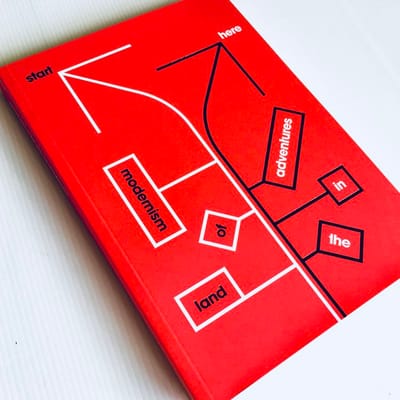
IsiZulu
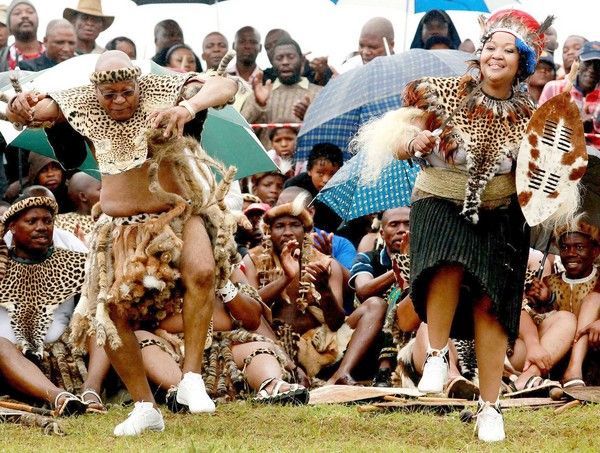
Greetings and Courtesies Hello! (to one person)- Molo! Hello! (to more than one person)- Molweni! How are you? (to one person)- Unjani? How are you? (to more than one person)- Ninjani? I am well- Ndiphilile, Ndiyaphila. We are well- Siphilile. Siyaphila. Goodbye! Stay well! (to one person)- Sala kakuhle! Goodbye! Go well! (to one person) -Hamba kakuhle! Goodbye! Stay well! (to more than one person)- Salani kakuhle! Goodbye! Go well! (to more than one person)- Hambani kakuhle! | History The Zulu, like Xhosa and other Nguni people, have lived in South Africa for a long time. The Zulu language possesses several click sounds typical of Southern African languages, not found in the rest of Africa. The Nguni people have coexisted with other Southern tribes like the San and Khoi. Zulu, like most indigenous Southern African languages, was not a written language until the arrival of missionaries from Europe, who documented the language using the Latin script. The first grammar book of the Zulu language was published in Norway in 1850 by the Norwegian missionary Hans Schreuder. | Numbers 1 - one - kunye 2 - two - kubili 3 - three - kuthathu 4 - four - kune 5 - five - kuhlani 6 - six – isithupha 7 - seven - isikhombisa 8 - eight - isishiyagalombili 9 - nine - isishiyagalolunye 10 - ten - ishumi |
Asking for help Excuse me, Sir. Uxolo, Mnumzana. Excuse me, Miss. Uxolo, Nkosazana. Do you speak English? Uyakwazi ukuthetha isiNgesi? Yes. Ewe. No. Hayi . I'm sorry. Uxolo. I'm sorry but I don't understand. Uxolo kodwa andiqondi. I don't speak Zulu. Andisithethi isiXhosa. | Days Monday- uMsombuluko Tuesday- uLwesibili Wednesday- uLwesithathu Thursday- uLwesine Friday- Ulwesihlanu Saturday- uMgqibelo Sunday- uSonto | |
Emegencies Fire! Umlilo! Kuyatsha! Hurry! Khawuleza! Help! Ndincede torho! Call the fire department! Biza isebe lezomlilo! Stop, thief! Bamba, isela! Stop him! Mise! Mbambe! Leave me alone! Ndiyeke! Where is the police station? Siphi isitishi samapolisa? I want a lawyer. Ndifuna igqwetha. Someone stole my car! Kukho umntu obe imoto yam! | Seasons Summer- ehlobo Springs- entwasahlobo Winter- ebusika Autumn- ekwindla | Months January – u Masingana February- u Nhlolanja March- u Ndasa April- u Mbasa May- u Nhlaba June- u Nhlangulana July- u Ntulikazi August- u Ncwaba September- u Mandulo October- u Mfumfu November- u Lwezi December- u Zibandlela |
IsiXhosa
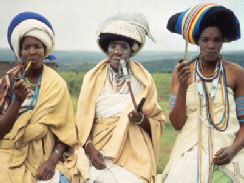
Greetings and Courtesies Hello! (to one person)- Molo! Hello! (to more than one person)- Molweni! How are you? (to one person)- Unjani? How are you? (to more than one person)- Ninjani? I am well- Ndiphilile, Ndiyaphila. We are well- Siphilile. Siyaphila. Goodbye! Stay well! (to one person)- Sala kakuhle! Goodbye! Go well! (to one person) -Hamba kakuhle! Goodbye! Stay well! (to more than one person)- Salani kakuhle! Goodbye! Go well! (to more than one person)- Hambani kakuhle! Good night!- Ulale kamnandi! See you soon-Sizobonana msinya. See you later- Sobonana emva kwexeshana. Courtesies Thank you. Ndiyabulela. Thank you very much. Ndiyabulela kakhulu. Please. Ndicela ... You are welcome. Nam ndiyabulela. Excuse me. Uxolo. Excuse me, what did you say? Uxolo, utheni? / uthini? It doesn't matter. Akukho nto. Sorry, excuse me. Uxolo. It's my pleasure. Nam ndiyabulela. | History Xhosa or isiXhosa is a Nguni Bantu language with click consonants and is one of the official languages of South Africa. Although not widely spoken there, it is also an official language of Zimbabwe. Wikipedia Xhosa-speaking people have inhabited coastal regions of southeastern Africa since before the 16th century. They refer to themselves as the amaXhosa and their language as Xhosa. AmaXhosa migrated to the east coast of Africa and came across Khoisan-speaking people; "as a result of this contact, the Xhosa people borrowed some Khoisan words along with their pronunciation, for instance, the click sounds of the Khoisan languages". The Bantu ancestor of Xhosa did not have clicks, which attests to a strong historical contact with a San language that did. An estimated 15% of Xhosa vocabulary is of San origin. In the modern period, it has also borrowed, slightly, from both Afrikaans and English.
| Numbers 1-one- inye 2-two- zimbini 3-three-zintathu 4-four- zine 5-five- zintlanu 6-six- zintandathu 7-seven-isixhenxe 8-eight-sisibhozo 9-nine-lithobaokwesithoba 10-lishumi |
Asking for help Excuse me, Sir. Uxolo, Mnumzana. Excuse me, Miss. Uxolo, Nkosazana. Do you speak English? Uyakwazi ukuthetha isiNgesi? Yes. Ewe. No. Hayi . I'm sorry. Uxolo. I'm sorry but I don't understand. Uxolo kodwa andiqondi. I don't speak Zulu. Andisithethi isiXhosa. I don't understand. Andiqondi. I understand a little. Ndiqonda kancinci. Yes, I understand. Ewe, ndiyaqonda Please speak more slowly. Ndicela uthethe ungangxami . Could you please speak more slowly? Khawuthethe ungangxami. | Days Onday-uMvulo Tuesday-uLwesibini Wednesday- uLwesithathu Thursday-uLwesine Friday-uLwesihlanu Saturday-uMgqibelo Sunday-iCawa | |
Emegencies Fire! Umlilo! Kuyatsha! Hurry! Khawuleza! Help! Ndincede torho! Call the fire department! Biza isebe lezomlilo! Stop, thief! Bamba, isela! Stop him! Mise! Mbambe! Leave me alone! Ndiyeke! Where is the police station? Siphi isitishi samapolisa? I want a lawyer. Ndifuna igqwetha. Someone stole my car! Kukho umntu obe imoto yam! | Seasons Winter-Ubusika Summer-Ihlobo Spring -Intlakohlaza Autumn-Ukwindla | Months January-uJanyuwari February-uFebhuwari March-uMatshi April-u-Epreli May uMeyi June uJuni July uJulayi August u-Agasti September uSeptemba October u-Okthobha November uNovemba December-uDisemba |
Southern Sotho
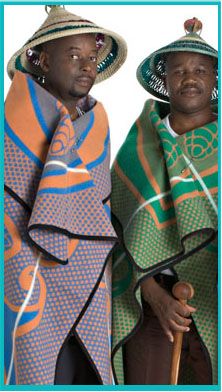
Sothern Sotho Language | ||
Greetings and courtesies Good day- Dumela Good morning- Mmoro How are you? - O kae? Im fine, and you? – Ke teng, wena okae? Goodbye (to a person staying)- Sla hantle Goodbye (to a person leaving)- Tsamaya hantle | History Southern Sesotho Language . Southern Sesotho is a Bantu language that originates from the Bantu-Nguni era. ... According to scholars, the original written form of this language was based on the dialect from Tlokwa and is today based mainly on the dialects from the Kwena and Fokeng. Sesotho (also known as Southern Sotho or Southern Sesotho) is a Southern Bantu language of the Sotho-Tswana (S.30) group, spoken primarily in South Africa , where it is one of the 11 official languages, and in Lesotho, where it is the national language. | Numbers 1 - one - nngwe2 - two - pedi 3 - three - tharo 4 - four - nne 5 - five - hlano 6 - six - tshelela 7 - seven - supa 8 - eight - robedi 9 - nine - robong 10 - ten - leshome |
Asking for help Excuse me- ntsoarele Can you please help me find the library?- O ka nthusa ho fumana laebraring? Please help me carry these chairs- Ka kopo, thusa ho jara litulo tsena How can I help you mam?- Nka u thusa mam joang? | Seasons Summer- lehlabula Springs- selemo Winter- mariha Autumn -hoetla | Days Monday-MantahaTuesday-labobedi Wednesday-Laboraro Thursday-Labone Friday-Labohlano Saturday-Moqebelo Sunday-sontaha |
Emegencies I want a Lawyer- ke nyaka moemedi Where is the police station? Na maphodiseng ke kae? Thanks for you help- ke leboga thuso ya gago Hurry- phakisa Help- thusa Fire- Mollo | Months January – Pherekong February- Hlakola March- Hlakubele April- Mmese May-Motsheanoeng June- Phuptjane July-Phupu August- Phato September-Loetse October-Mphalane November-Pulungoana December- Tshitoe | |
Tshivenda
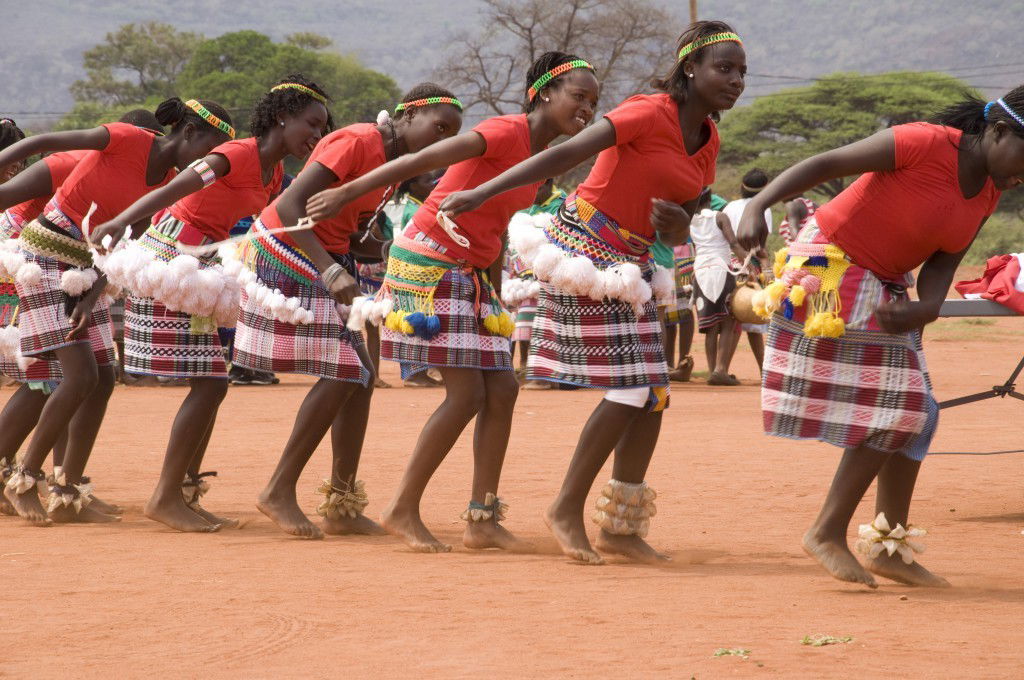
Tshivenda Language | ||
Greetings and courtesies Hello / Hi (informal email) (conversational: all times of the day) ? Aa / ? Ndaa Morning Ndi matseloni Afternoon Ndi masiari Good evening Ndi madekwana How are you? Vho vuwa hani? I am fine, thank you Ne ndo takala vhukuma Thank you Ro livhuwa / Ndo livhuwa What is your name? Dzina lavho ndi nnyi? My name is... Dzina langa ndi... Goodbye Kha vha sale zwavhudi | History In 1962, the South African Government created Venda as a homeland for the Venda-speaking people. The area set aside for the bantustan, or homeland , was in the north east of South Africa close to the Zimbabwe border. Its northeastern border was the Kruger National Park with Gazankulu, another homeland, towards the southeast. Its capital was Thohoyandou and it was the smallest of all the homelands. The homelands were supposedly created to allow Black South Africans to govern themselves and to preserve their culture, but in reality, they denied their residents any opportunity to participate in South African politics. They also lost their citizenship to the country and were contained on a fraction of the usable land in the republic. In 1973, Venda was granted self-government and in 1979, it was granted independence. The United Nations (UN) Security Council condemned the homelands policy as a strategy of the South African governments to further apartheid and Venda was not recognised as an independent country by the rest of the world. The economy largely depended on agriculture until coalmining began in the 1980s. Most of the men from the area were migrant workers and their wages made up about 40% of the small homeland's income. Venda applied to become a part of South Africa in 1991. The homeland policy was dissolved in 1994 and all the homelands | Numbers one thihi two mbili three tharu four i?a five ?hanu six rathi seven sumbe eight malo nine ?ahe ten fumi |
Asking for help can you please help me?- ndi khou humbela thuso? im sorry- ndi khou humbela pfarelo i dont understand- athi pfhesesi do you | Seasons Winter-Vhuria Summer-Tshilimo Spring -Tshifhefho Autumn-Lutabvula | Days Sunday-Swondaha Monday-Musumbuluwo Tuesday-?avhuvhili Wednesday-?avhuraru Thursday-?avhu?a Friday-?avhu?anu Saturday-Mugivhela |
Emegencies I want a Lawyer- ndzi lava Qhweta want a Lawyer- ke nyaka moemedi Where is the police station? Na maphodiseng ke kae? Thanks for you help- ke leboga thuso ya gago Hurry- phakisa Help- thusa Fire- Mollo | Months January Phando February Luhuhi March ?hafamuhwe April Lambamai May Shundunthule June Fulwi July Fulwana August ?hangule September Khubvumedzi October Tshimedzi November ?ara December Nyendavhusiku | |
Xitsonga
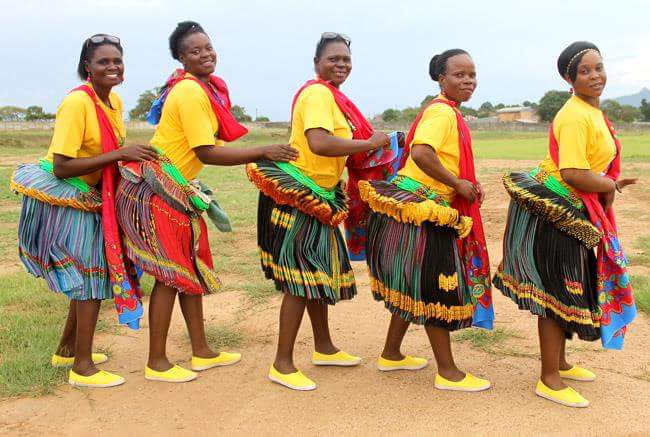
Xitsonga Language | ||
Greetings and courtesies Hello ( to one person)- Kunjhani Hello ( to more than one person) – Minjhani How are you ( to one person ) upfukile How are you ( to more than one person)-Mipfukile Thank you- ndza khensa Goodbye- U sala kahle | History The Xitsonga language was studied in great detail by the Swiss missionary, Henri-Alexandre Junod between the year 1890 and 1920, who made the conclusion that the Xitsonga language (which he called the "Thonga language" at the time) began to develop in Mozambique even before the 1400s. In his own words, Junod states the following: My conclusion is then that the Thonga language was already-spoken by the primitive occupants of the country more than 500 years ago and that, together with a certain number of customs, it formed the great bond which bound the Thonga clans together in past centuries. Further studies were carried out by Junod and other Swiss missionaries such as Henri Berthoud and Ernest Creux, who began to unify the language in order to have a standard way of writing and reading. "Shigwamba" was a term used by the missionaries in order to group the language under a unified identity; however, the name was unfamiliar to many of the Tsonga people and had to be replaced with "Thonga/Tsonga". Harries makes reference to this: As the term Gwamba was unknown outside the Spelonken, Henri Berthoud recommended that the mission abandon the term and replace it with the widely accepted genericism, Tonga/Thonga. Swiss missionaries engaged with the Tsonga people and used their assistance to translate the Bible from English and Sesotho into the Tsonga language. Paul Berthoud published the first book in 1883, which came as a result of the help he received from the translations by Mpapele (Mbizana) or Mandlati (Zambiki). The two men we | Numbers One-n'we Two-mbirhi Three-nharhu Four- mune Five-ntlhanu Six- ntsevu Seven-nkombo Eight- nhungu Nine-nkaye Ten-khume |
Asking for help Can you please help find the library?-Ndzikombela ku vutisa leswaku library yilekwihi? Please help me carry these chairs- Ndzi kombela ku pfuniwa ku rhwala switulu How can I help you mam? Xana ndzi nga mipfuna hiyini mhani? | Seasons Winter- Xixika Summer-Ximumu Spring -Xixikana Autumn-Ximunwana | Days Sunday Sonto Monday Musumbhuluko Tuesday Ravumbirhi Wednesday Ravunharhu Thursday Ravumune Friday Ravuntlhanu Saturday Muqghivela |
Emegencies I want a Lawyer- ndzi lava moyimeri Where is the police station? xi le kwihi xitichi xa maphorisa Thanks for you help- Ndzi khensa ku pfuniwa Hurry- hatlisa Help- pfuna Fire- Ndzilo | Months January-sunguti February-Nyenyanyana March-Nyenyankulu April-Dzivamisoko May-Mudyaxihi June-Khotavuxika July-Mawuwani August-Mhawuri. September-Ndzhati. October-Nhlangula November-Hukuri. December-N'wendzamhala . | |
Sepedi
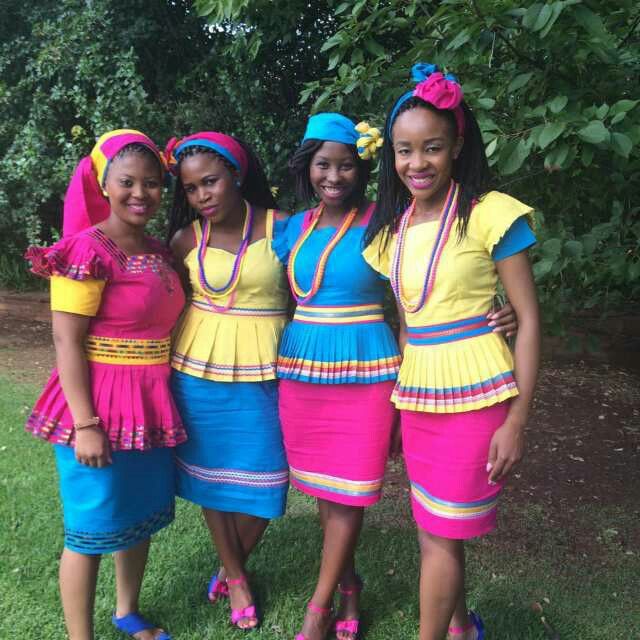
Sothern Sotho Language | ||
Greetings and courtesies Good day- Dumela Good morning- Mmoro How are you? - O kae? Im fine, and you? – Ke teng, wena okae? Goodbye (to a person staying)- Sla hantle Goodbye (to a person leaving)- Tsamaya hantle | History Southern Sesotho Language . Southern Sesotho is a Bantu language that originates from the Bantu-Nguni era. ... According to scholars, the original written form of this language was based on the dialect from Tlokwa and is today based mainly on the dialects from the Kwena and Fokeng. Sesotho (also known as Southern Sotho or Southern Sesotho) is a Southern Bantu language of the Sotho-Tswana (S.30) group, spoken primarily in South Africa , where it is one of the 11 official languages, and in Lesotho, where it is the national language. | Numbers 1 - one - nngwe2 - two - pedi 3 - three - tharo 4 - four - nne 5 - five - hlano 6 - six - tshelela 7 - seven - supa 8 - eight - robedi 9 - nine - robong 10 - ten - leshome |
Asking for help Excuse me- ntsoarele Can you please help me find the library?- O ka nthusa ho fumana laebraring? Please help me carry these chairs- Ka kopo, thusa ho jara litulo tsena How can I help you mam?- Nka u thusa mam joang? | Seasons Summer- lehlabula Springs- selemo Winter- mariha Autumn -hoetla | Days Monday-MantahaTuesday-labobedi Wednesday-Laboraro Thursday-Labone Friday-Labohlano Saturday-Moqebelo Sunday-sontaha |
Emegencies I want a Lawyer- ke nyaka moemedi Where is the police station? Na maphodiseng ke kae? Thanks for you help- ke leboga thuso ya gago Hurry- phakisa Help- thusa Fire- Mollo | Months January – Pherekong February- Hlakola March- Hlakubele April- Mmese May-Motsheanoeng June- Phuptjane July-Phupu August- Phato September-Loetse October-Mphalane November-Pulungoana December- Tshitoe | |



